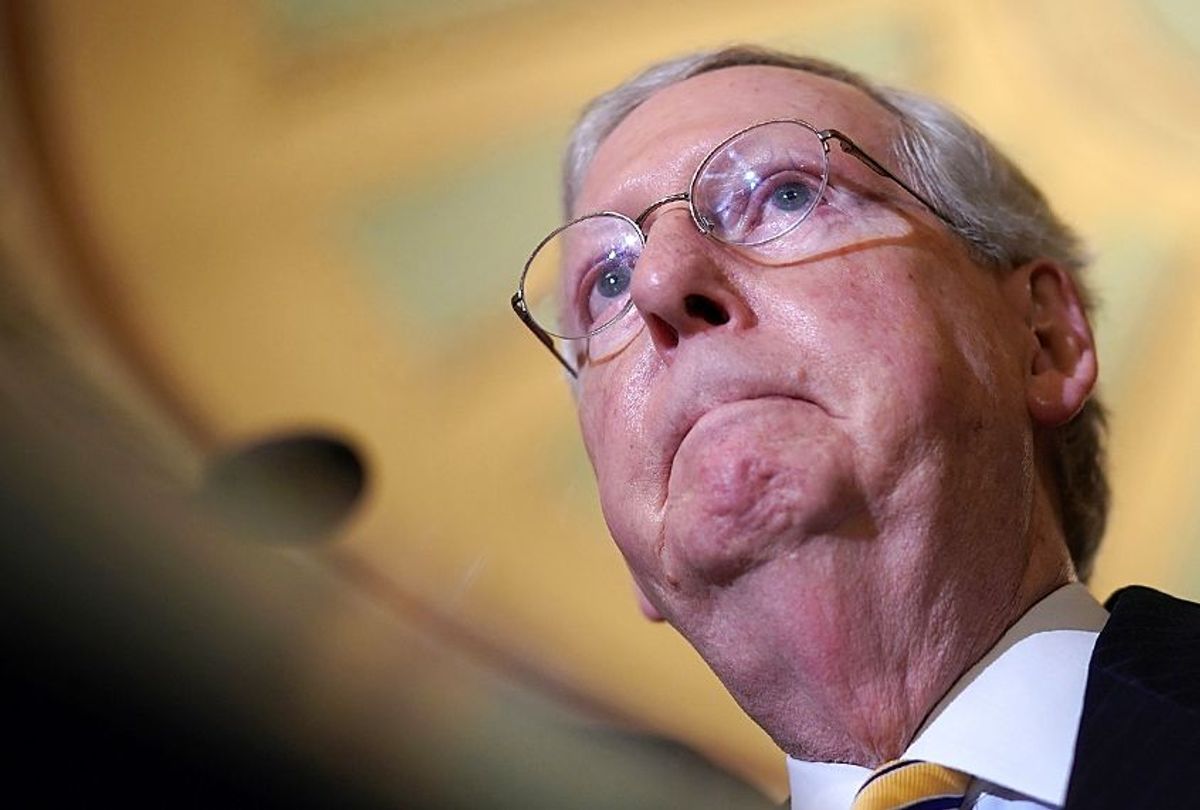Senate Republicans punted a crucial vote on tax reform to Friday morning following debate that lasted late into Thursday evening, however it's still unclear if the party can meet senators demands and muster enough votes to bring the bill to the floor, according to multiple news reports.
The next vote in the debate on tax reform will come on Friday at 11 a.m. while Republicans look to sway the deficit hawks and gain their support, Politico reported.
"We'll finish tomorrow. It takes a little while to write a bill or come to a conclusion about something this important," Sen. Lamar Alexander, R-Tenn., told CNN. "Let's just put it this way, my flight is late tomorrow afternoon, so, I wasn't planning to leave tonight."
Sen. Bob Corker, R-Tenn., has expressed serious concern over the impact the $1.5 trillion tax cuts will have on the deficit. On Thursday, the Joint Committee on Taxation unveiled an analysis of the bill that said that GOP-led tax bill would add more than $1 trillion to the deficit over the next decade.
President Donald Trump and Republicans alike have all claimed that the tax bill would essentially pay for itself by spurring economic growth, a plan that has not been backed up by evidence despite White House promises.
Being a deficit hawk, Corker wanted to place a trigger inside the bill that would would raise taxes if growth was not seen, but the vote "would not pass procedural muster" multiple GOP senators said Thursday evening, Politico reported.
"It doesn’t look like the trigger is going to work, according to the parliamentarian," said Senate Majority Whip John Cornyn, R-Texas, Politico reported. "So we have an alternative, frankly: a tax increase we don’t want to do to try to address Sen. Corker’s concerns."
Corker said, "My understanding is, that the parliamentarian has ruled against it so they’re just going to automatically put [tax increases] in, period."
With the trigger, taxes would begin after six years of the bill's implementation and would raise roughly $350 billion in revenue from the tax hike, but there are concerns that the amount should be even higher.
"What we're trying to do right now is get to the point where nobody's going to get exactly what they want but enough for us to get the bill passed," Sen. Thom Tillis, R-N.C., told reporters, according to Politico.
Corker stalled on "the Senate floor on and off for nearly an hour as an amendment vote was held open and dozens of reporters filled the Senate chamber to watch the drama unfold from above," CNN reported.
One Republican aide said they were "furious" with Corker. "Didn't need to be done publicly. Didn't need to cause a scene. We know it's a problem. Fix it behind closed doors," the aide told CNN.
"When the trigger doesn't work, you have to come up with, I think, $350 billion," Sen. Lindsey Graham, R-S.C., said, according to CNN. "That makes everything different. So, we'll get there, because failure's not an option."
While there are a few different way of solving the issue, none of them could be agreed upon by everyone.
CNN elaborated:
One option, Texas Sen. John Cornyn floated, would be to gradually raise the corporate tax rate, which Republicans had planned to lower to 20 percent. That would surely upset House Republicans and Trump who had lobbied aggressively to drop the corporate tax rate to 15 percent. The other option was to not completely repeal the alternative minimum tax, a levy that is used to ensure wealthy individuals cannot just use tax loopholes to avoid paying taxes all together.
With only 52 seats in the Senate, the Republicans —with a tie-breaking vote cast by Vice President Mike Pence — can only afford to lose two votes. Sen. Ron Johnson, R-Wis., wants more tax breaks for pass-through businesses, and argued the bill was too generous to corporations, but those proposals will cost more money. On the other hand, Corker and Sen. Jeff Flake, R-Ariz., have argued the bill will already drive up the deficit.
Leaving those arguments aside, Sen. Susan Collins must be won over as well as she has "asked leadership and the Trump administration to promise her that they will support a package that she says would help stabilize the Obamacare marketplace after Republicans repeal the individual mandate in their tax bill," CNN reported.
Nevertheless, Republicans still have some work to do on their tax plan, and the clock is ticking.



Shares